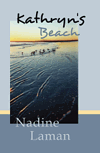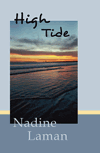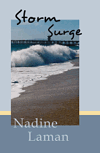Minutes before I left the office on Friday a friend emailed that they had a client who had written a book... The rest is obvious.
How to get published? There are no shortcuts. I recently bought a book from Amazon. When I hastily checked "Look Inside" I should have spotted that it was homemade, and not very well done at that. The book was to be a gift, but when it arrived, one look and it went into the recycling bin.
For some reason people think that writing doesn't require more than a computer or iPad. Besides imagination and the ability to tell a good story, it requires skills of the craft. As I've said before, reading books doesn't teach writing. It exposes an aspiring writer to writing, but doesn't teach the skills. Let's face it, I drive a car, but that doesn't make me a mechanic. It makes me a driver.
With the ease of the Internet, there is no excuse for an aspiring writer not to learn the craft. Better yet, take writing classes at the local university. A writer should KNOW plot, character development, pacing, voice, tense, point of view, grammar rules (there are eight parts of speech and one of them is prepositions -- there are 48 prepositions), learn this stuff; the list is even longer.
In the digital age, an aspiring writer must know more than the basics of using a computer. Purchase MS Word. I'm not promoting Microsoft, but the free programs that convert text documents to Word are faulty. Word is the common language of the industry, invest in it. A mechanic isn't going to use a screwdriver when they need a wrench. Aspiring writers should invest in the craft and use the correct tools.
Learn the correct format for the document. A manuscript has double spaced lines. Use page breaks at the end of each chapter rather than the enter key a whole bunch of times. Use one space between sentences, not two. A synopsis is single spaced lines and no longer than two pages. It tells the whole story. Don't be coy and leave the end a mystery. Give an overview of the main character's progression from first paragraph to the last line in the manuscript. Practice writing a professional quality query letter. Practice some more.
Research literary agents and publishers. Know what genre you write. Avoid being uppity. You're only a writer asking someone to invest time and money into your project. Don't be pathetic either. Why would someone invest their money if you don't believe in the value of your manuscript?
There are alternatives to traditional publishing. Learn what they are if you aren't going the traditional route. Self-publishing is a whole new adventure and it requires due diligence to avoid disappointment.
Your best friend, family member, or Grammar geek is not the same as a certified proof reader. If you're serious about becoming a published author, print your manuscript and read it aloud. If you short cut this rule, then don't be disappointed with a lack of success in the industry.
Be patient. Unless you self-publish, expect the process to take up to two years to see your ms converted into a published book. Realize that effort and expertise is being added to the value of your ms. Be thankful that someone who knows a lot more about publishing than you do is investing in your manuscript. Success requires effort.
Check out part 1 and 2 of this article.
http://www.guardian.co.uk/books/2010/feb/20/ten-rules-for-writing-fiction-part-one
And this:
http://www.salon.com/2010/02/24/readers_advice_to_writers/
http://www.guardian.co.uk/books/2010/feb/20/ten-rules-for-writing-fiction-part-one
And this:
http://www.salon.com/2010/02/24/readers_advice_to_writers/

 When Paul Fenton stops for breakfast in a small town, he gets more than he bargained for in the process.
When Paul Fenton stops for breakfast in a small town, he gets more than he bargained for in the process.
 When two-hundred-year-old human remains are discovered on one of Neptune's moons, Earth's history falls into question.
When two-hundred-year-old human remains are discovered on one of Neptune's moons, Earth's history falls into question.
 Emily's husband persuades her to try thalidomide to ease her symptoms as she is unaware of the devastating effects.
Emily's husband persuades her to try thalidomide to ease her symptoms as she is unaware of the devastating effects.
 Who is the women's shelter bomber? Melissa Ryan suspects that her husband knows.
Who is the women's shelter bomber? Melissa Ryan suspects that her husband knows.
 Further developments with the Wilder family.
Further developments with the Wilder family.
 A hidden past shakes the O'Donovan family to its core
A hidden past shakes the O'Donovan family to its core
 A swirl of emotion and choice, set in Cape Town, South Africa
A swirl of emotion and choice, set in Cape Town, South Africa
 Love is a constant, but it comes at a price.
Love is a constant, but it comes at a price.
 When the road ahead is unclear, sometimes you have to rely on trust.
When the road ahead is unclear, sometimes you have to rely on trust.
 The struggle between good and evil is ages old. It gets all the more complicated when the good guys aren't all good and the bad guys have redeeming qualities.
The struggle between good and evil is ages old. It gets all the more complicated when the good guys aren't all good and the bad guys have redeeming qualities.
 Story of a land mothering two races of people – the light-skinned and the dark-skinned.
Story of a land mothering two races of people – the light-skinned and the dark-skinned.
 A gifted Ukrainian ballerina comes into possession of a mysteriously coded address book.
A gifted Ukrainian ballerina comes into possession of a mysteriously coded address book.
 Six passengers' lives change for better or worse after they arrive in Honiton.
Six passengers' lives change for better or worse after they arrive in Honiton.
 Resilience and love in a harsh and unforgiving age
Resilience and love in a harsh and unforgiving age
 Kathryn's Beach
Kathryn's Beach High Tide
High Tide Storm Surge
Storm Surge